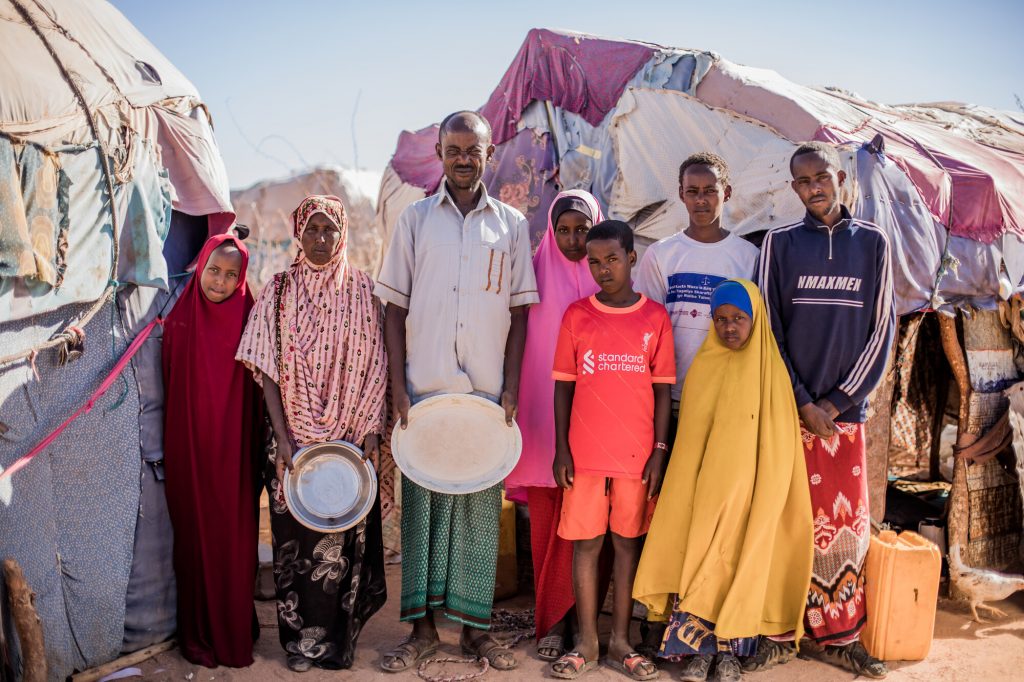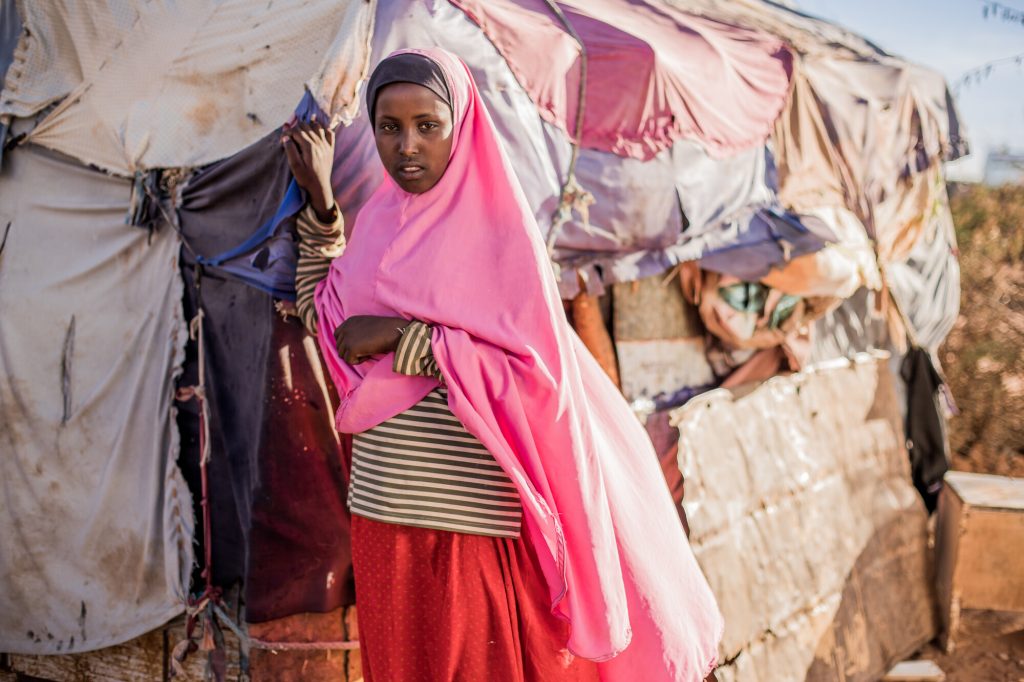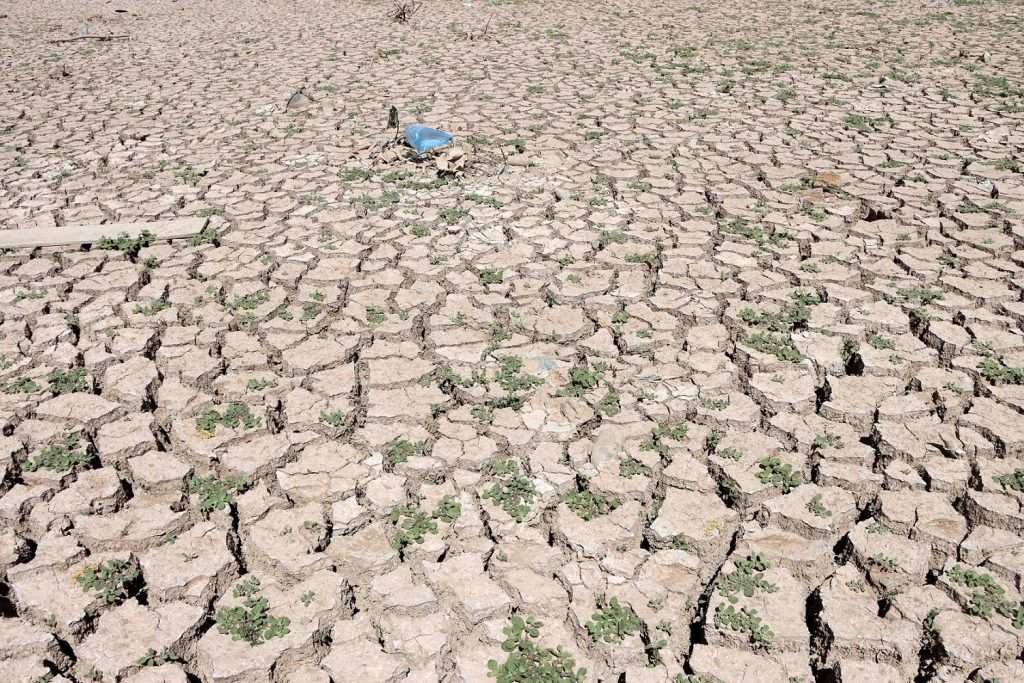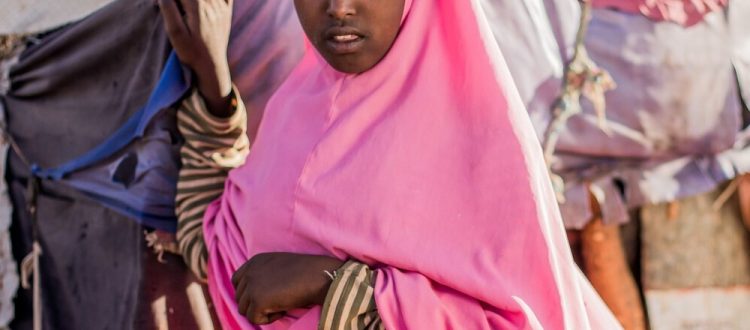Hunger Forces Somali Families to Sell their Daughters into Marriage
As Somalia continues to grapple with widespread food insecurity, armed conflict and drought, families are being forced to make the painful decision to sell their daughters into marriage in order to feed the rest of their children.

Qadan and her large family[1] have been living in a displacement camp in the Toghdeer region of Somaliland, for the past three years. “We came here during the last drought. We don’t have jobs or any cattle, all 150 of our cows died due to the drought.”
With no income or food to feed their children, Qadan and her husband decided to marry off their two eldest daughters when they were 15 and 16 years old. “We are not happy with what we did, we wanted the girls to go to school but we couldn’t afford it and thought marriage would be beneficial for them.”
Qadan explains that it was a very hard decision to make, but says they had no choice as the money they received in the form of a dowry helped the rest of the family survive. “We didn’t get much for the girls, a dowry of 200 USD each. We used the money to buy food and pay back a loan that we had taken out to buy food.”

With four other girls in the family, 13-year-old Khadra fears that she may be next in line for marriage. “I miss my married sisters, they were supposed to be here and support me. I want them to come back. The reason why they married men is because of the drought that happened to us,” she says.
Although she still goes to school, Khadra says the lack of food makes it difficult for her to concentrate in class. “It’s hard for me in school when I’m hungry. When I go to school without eating, I feel dizzy and I can’t read very well in class. I don’t do well in exams when I’m hungry, but when I eat, I answer questions well. Hunger affects my studies.”
Khadra’s younger sister Eido, 8, agrees. “I’m in grade 2. We eat sometimes and sometimes not. When I don’t eat, I feel tired and don’t have energy to go to school and play with my friends. When I am hungry, I can’t do anything in school. They sometimes give us little porridge at school.”
“I want to be educated, to be able to read and do everything in the future. When my sisters left to get married, I was so sad,” shares Eido. “Now I have to do things I didn’t do before, like washing the dishes and mopping the floor.”

Conflict and climate change are working together to destroy the lives and livelihoods of millions of people in Somalia. According to IPC, the latest analysis shows that between October and December 2023, approximately 4.3 million people in the country – a quarter of the population – will experience high levels of acute food insecurity.
When food is scarce, girls are often among the first and worst affected. “Sometimes we don’t have enough food and my younger siblings are prioritised. Sometimes we can’t even cook breakfast because we don’t have food to cook, and sometimes we don’t even have lunch. I sleep hungry most of the time,” says Khadra quietly.
With the need to buy food taking priority over children’s education, girls are at increasing risk of dropping out of school and being forced into early marriages. “I have four other daughters and I don’t want them to get married. I want them to continue with their education,” says Qadan.
“We depend on others for our food and survival. Sometimes we don’t eat anything for 12 hours and I tell the older ones to sleep hungry so I can feed the younger ones the little I can find. And sometimes we don’t cook because we don’t have water. We are living in very hard conditions, but we are living,” Qadan concludes.
After learning about the situation of Qadan’s family, Plan International provided her and her children with direct cash transfers and support them to access to water. The multi-purpose cash assistance is being distributed with the support of our local partners TAAKULO and GREDO to help families in Somalia meet their basic needs such as food, water, and health care.
[1] According to World Bank, Somalia has the second-highest fertility rate – 6.3 births per woman — in the world. Factors contributing to this include local cultural preferences and perceptions, the lack of medical and family planning services, persistent political instability, as well as the prevalence of child marriage, gender inequality, and low levels of female education.
*Plan International has been operating in Somalia since 2019; tackling the root causes of the challenges and inequalities that children and young girls face. We are a vocal advocate for girls’ rights, specifically on child marriage and female genital mutilation. Our work focuses on promoting gender equality and women’s empowerment within our protection and humanitarian response programmes. Currently, we are implementing programmes in the Waqooyi Galbeedi, Sool, Sanaag and Togdheer regions.
Extended Reading: A Closer Look: Cultivating Hope for Children in MEESA Region Amidst Hunger, Climate Change, Displacement, Child Marriage, Poverty, and Unemployment
